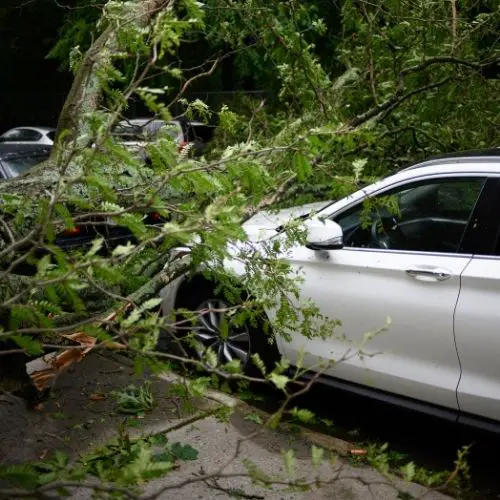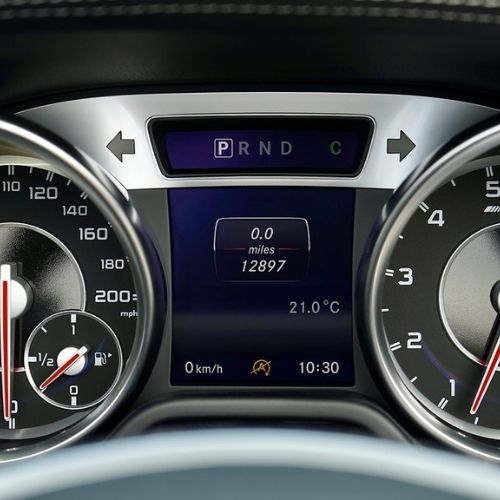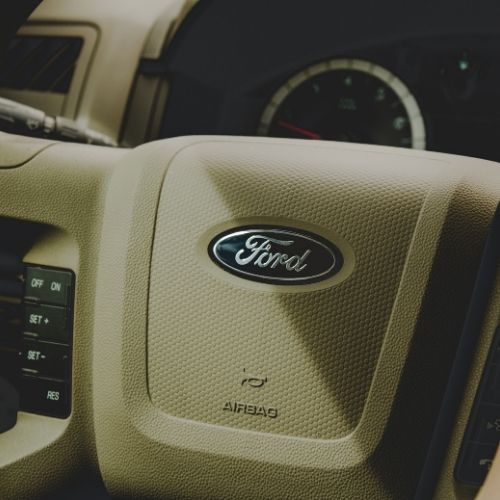We may get commissions for purchases made through links in this post. Thanks for the support! 👍
Most people at some point in their lives will end up buying a used car. I have… bought quite a few at this point.
Ranging from a 1992 Subaru Legacy that would had such a bad oil leak that you couldn’t see out the windshield when you stopped, to my current 2004 Dodge Ram 1500.
Now during all of these purchases (probably around 20 at this point), I have made quite a few mistakes in that time. Of course there are many more, that I will probably make, but here are the main ones I have learned so far!
Mistakes ranging from not keeping an eye on insurance costs, to safety ratings, to vehicles that have high drivetrain failure rates can all haunt you for not only the life of that vehicle, but even past that. Make sure you are keeping these 8 (plus a bonus) different things in mind when buying a used car.
- 1. Pay attention to insurance costs before buying, not after
- 2. Keep maintenance costs in mind
- 3. Mileage on a vehicle
- 4. Safety Rating
- 5. Who you are buying the vehicle from
- 6. Weird sounds coming from the vehicle
- 7. Vehicles known for drivetrain failures
- 8. Age of vehicle
- Bonus: Check all fluids before buying
- Conclusion
1. Pay attention to insurance costs before buying, not after

I remember when I was a teenager, my old Saab was on its last legs, so I decided to go out and buy a “reliable” car.
Without shopping around hardly at all I settled on a 2004 Oldsmobile Alero coupe, yes a coupe Alero. It was a pretty nice car, with decent power (V6) and a decent sound system.
What I didn’t pay attention to when buying the car, and figuring out my finances, was the insurance cost.
After signing the paperwork, and committing to buying the car, I then added it to my parents insurance (I was still a teenager at the time), and it turns out it was over $300 per month, which was double the car payment.
I then had to scrambled to find a cheaper option, which I ended up getting the lowest of the low insurance, of which I do not recommend doing at all.
Moral of the story, make sure you pay attention to all costs associated to buying the car you want before you buy it.
Pro Tip: If you have a loan, they most of the time will require comprehensive insurance. Meaning a higher cost.
2. Keep maintenance costs in mind
I have had a couple of fun cars in my time of buying used cars. Two of them were Audi. One was up there as my favorite car, being a 2001 Audi TT with the 1.8 Liter turbo.
What people don’t like to tell you, is while these vehicles tend to be low cost, and seem like a great deal. They will probably cost you $1500.00 per year or so in maintenance.
Soon after buying my Audi TT, a slave cylinder in the transmission went out. This is a little plastic piece that goes out in these vehicles, and requires the whole transmission to be dropped. The cost of fixing it, is up there with the cost of replacing the vehicle.
Another example of this, is when I traded the now no longer drivable TT for a 2002 Audi A6 ( yes I thought this was a good idea).
This A6 ended up having a bad valve cover, I had that valve cover replaced, and then the other valve cover goes out as I left the shops parking lot.
When I decided to try and sell the vehicle, on the test drive, one of the 2 turbos starts to fail.
Let’s just say, until I can have a bumper to bumper warranty I’ll be sticking to domestic vehicles for now.
Also on this note, keep in mind those complicated features you find in new cars like the Sonata are going to be features that need to be maintained down the road.
3. Mileage on a vehicle

While an obvious point to think about, it is worth mentioning.
It is worth mentioning, because some vehicles may still be worth looking at, even with higher mileage.
Diesel vehicles are well known to last much longer than their gas counterparts.
A diesel F-350 for example can last much much longer than the exact same truck with the gas version engine.
Make sure to do your research before buying of course.
4. Safety Rating
Safety ratings of a vehicle are very very important.
Speaking from experience, a vehicle accident can change your life for years.
Because of this, I highly recommend making sure to review the safety rating of the vehicle you are looking at buying on the NHTSA’s website. This site gives some great reviews for your safety.
5. Who you are buying the vehicle from
There are many different ways to buy a car from different types of people.
This can range from used card dealers, new car dealers, auctions and all the way to the private sellers.
The main thing on this one, if you don’t have a good feeling about the person that is showing you the car, it is best to just walk away. Your intuition when buying a vehicle tends to be correct.
If a car seems too good to be true, it probably is. This goes for all types of people that are selling a car.
6. Weird sounds coming from the vehicle
This one is quick. If the car is making weird sounds that the current owner of the vehicle can’t disclose, (like backfiring) you don’t know what it is, and you can’t find out, just don’t buy it.
Also, it should be noted, if you don’t know cars very well, its best to take someone with you that does!
7. Vehicles known for drivetrain failures

When you are searching for a vehicle, make sure to do your research. Some cars are known for very specific failures that have to do with the engine or transmission.
For example, the 5.4 liter in the F-150s tend to have a cam phaser failure. While this is fixable, if it hasn’t been fixed currently on the truck, make sure to account for that fix in the future of owning the vehicle.
If the common issue has to do with a catastrophic failure… then best to just steer clear of the vehicle.
8. Age of vehicle
This one again just takes research into the vehicle. Some older vehicles will drive on for a long time, others just won’t…
Make sure the vehicle you are looking to buy is not at the end of its life before buying.
Bonus: Check all fluids before buying
As I am updating this article, I though that this final point should be added in! I recently bought a newer version of my old truck, that had the bigger engine in it.
However what I didn’t check, was the fluid levels for coolant and oil while doing my research for the vehicle.
Short story, I got back home to find hardly any coolant in the vehicle, and extremely low oil.
I had to immediately replace the radiator, and the PCV valve right after buying vehicle.
Thankfully I checked when I did, as both of those things could have destroyed the engine.
Conclusion
While this is not meant to be an exhaustive list of things to look at, as there are many. These are just some of the things I have learned over my time of buying cars.
Make sure to take this advice with a grain of salt as well, as it is my opinion.
Interested in learning more about cars from us here at A Man And His Gear? Check these articles out here.
Editors Note: This article was originally posted on March 22, 2019, but has since been updated for formatting, and to further discuss the subject.
![This Is How Cars Have Wifi [And Why]](https://amanandhisgear.com/wp-content/uploads/2020/01/How-do-cars-have-wifi.jpg)

